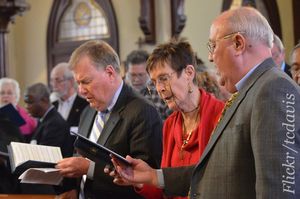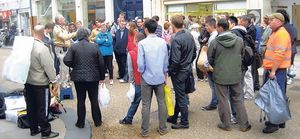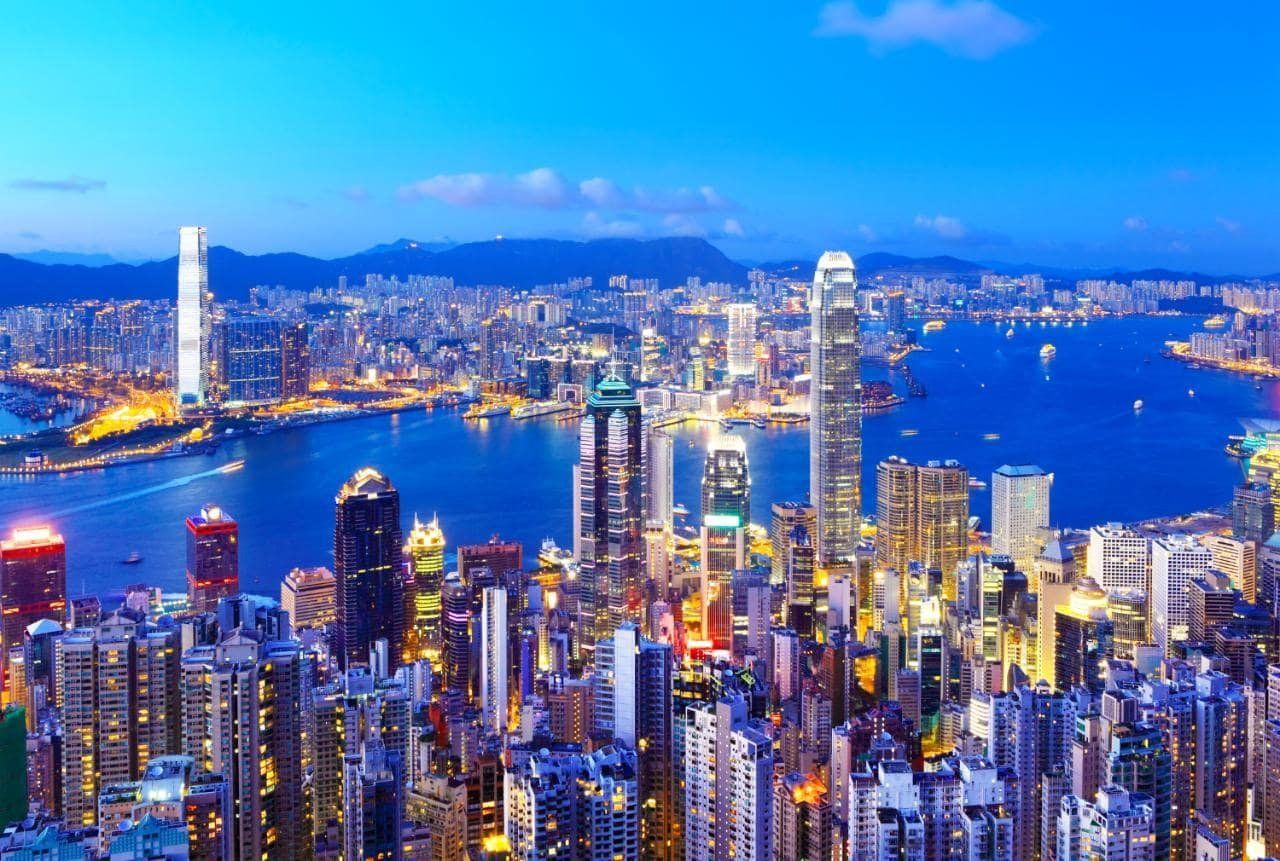
Hong Kong is a city of paradox and contradictions. This becomes clear the moment you touch down at busy Kai Tak airport. Hong Kong in Cantonese means ‘fragrant harbour’ but even as you reach for your luggage in the overhead rack some very different odours from the filthy harbour permeate the cabin!
Hong Kong in the 1840s was a small fishing village – today it is one of the financial centres of the world, with a breathtaking waterfront of towering offices and hotels.
Hong Kong under British rule kept to an archaic system of colonial government, yet paradoxically enjoyed the benefits of a British legal system and the freest Press in east Asia. This bustling city of over six million people (98% Chinese) is being handed back to mainland China on 1 July this year – yet those people have never had any say in the matter which was decided over their heads.
Optimism and concern
Many in the business community, both Chinese and foreign, are highly optimistic, and the Hong Kong stock exchange continues to boom. Ordinary people are philosophic and just want to get on with their own lives as quietly as possible. However, many of the Western-educated elite in the legal service, the Press and in religious circles are deeply concerned by the erosion of Hong Kong’s freedoms even before the hand-over.

The church in Hong Kong also presents a very varied picture. Many Chinese Christians have already left for Canada or the U.S. In fact, the rate of emigration among Christians is higher than that for the general population. Many older people have fled from China over the past fifty years and have not forgotten the harrowing persecution of the church in the fifties and during Mao’s Cultural Revolution (1966-76). They are concerned that their children and grandchildren make a living free from fear.
A growing church
Despite this exodus, the church in Hong Kong continues to grow. In 1989 there were 872 churches – today there are over 1,000. Registered church membership has also risen from 270,000 to 381,000. Older pastors have retired or emigrated and many younger men are now taking leadership responsibilities. The old traditionalism, which owes much to Confucian ideas of patriarchy whereby the pastor rules the church with an iron rod and does everything, is giving way to more scriptural patterns.
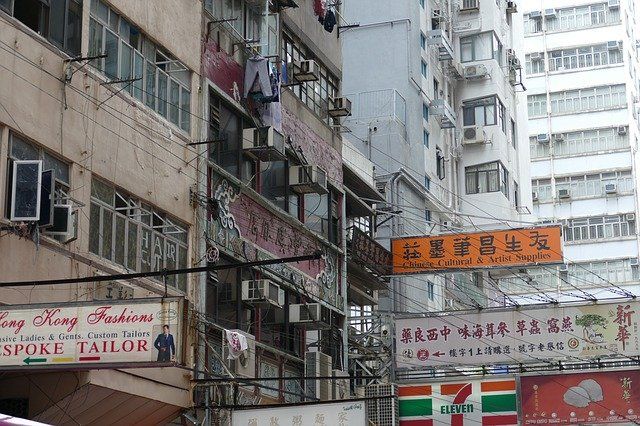
Leadership of the mainline denominations such as the Anglicans and Methodists is largely liberal. They have gone out of their way to develop relations with the State church in China and to express their sympathies with the Communist Party controlled ‘Three Self Patriotic Movement’. However, most of the Protestant churches in Hong Kong fall into the broad evangelical category. These range from large, well-ordered church buildings with hundreds of members to small fellowships meeting in a cramped room rented in a tower block. If one looks up as one travels the teeming streets of Kowloon one often sees signs proclaiming the existence of some such fellowship. Although there has been a definite trend in recent years for evangelicals, especially in the larger seminaries, to develop relations with the State church in China, at the grass roots there exists considerable unease and suspicion about the prospects of life under Chinese Communist rule.
Churches infiltrated
The policy of the new ‘Hong Kong Special Administrative Region’ government towards religious freedom has already been spelt out. On paper, full religious freedom will continue to exist and nobody expects the new authorities to begin shutting down churches this July. However, the Communists are past masters at surveillance, supervision and control. There is strong evidence that some churches have already been infiltrated by their sympathizers, slotted into key leadership positions. A pastor of one of Hong Kong’s largest evangelical churches confirmed this some years ago. Already, an atmosphere of self-censorship has spread throughout the Christian community. Criticisms of lack of religious freedom in China which would have been freely expressed a decade ago are now silenced or muted.
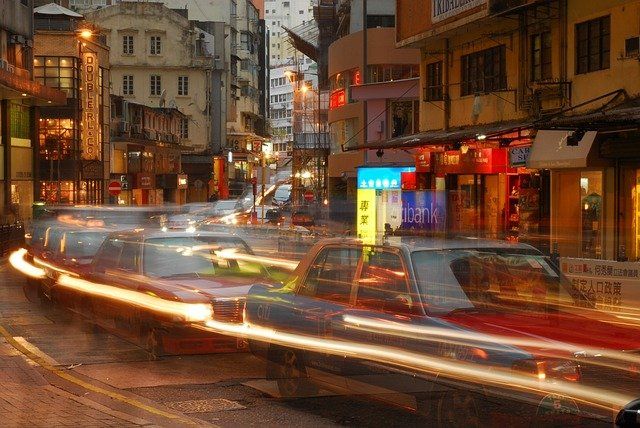
Evangelism curtailed
Some Hong Kong churches and para-church organizations have been very active in supporting the house churches in China and doing clandestine evangelism and Bible training. It is these keen evangelicals who can expect pressure to curtail their activities in the near future. The Chinese Government has ominously laid down a principle of ‘mutual non-interference’. Hong Kong churches which mind their own business and stick to Christian work in Hong Kong can hope to continue, but those which have ‘interfered’ in the mainland may expect otherwise. Already some groups have removed their offices to Taiwan and other countries. It seems that Christians in Hong Kong will no longer be able to send in millions of Bibles and other Christian books to needy souls in China, and Hong Kong will lose its unique, strategic place as a base for ‘China ministry’.
Churches in Hong Kong are also worried by a new law proposed which would forbid ‘political groups’ from having connections with foreign organizations or receiving funds from overseas. Some Christian leaders are worried that churches could be defined as political groups and are not convinced by assurances to the contrary.
Few Reformed churches
Theologically, the churches in Hong Kong are very mixed. The charismatic movement has made some inroads, with visits by John Wimber and others, but most churches have been resistant to outside influences of this kind. More worrying is the trend in some seminaries and evangelical publishing houses to introduce the latest Western theological trends, such as liberal and feminist theology. Hong Kong Christians are very earnest in seeking theological training and it is questionable whether the endless pursuit of certificates and degrees and attendance at seminars actually deepens the spiritual life. Reformed theology is very little known. One or two small Reformed fellowships exist, one with the Baptist Confession of 1689 as its confession of faith and a conference on Puritanism was well attended some years ago. One young man told me it was ‘like streams in the desert’!
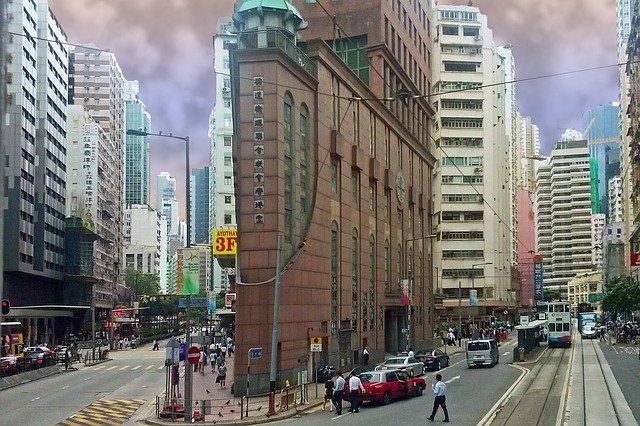
Some good-quality Christian literature has been translated including works by Bunyan, Spurgeon, Packer and Lloyd-Jones. Prayer is needed that Hong Kong’s many Christian publishing houses will be allowed to continue to print Christian literature in future years.
Encouraging signs
However, there are encouraging signs that God is at work. Thousands of Hong Kong Christians meet regularly for prayer and intercession seeking God for renewal and revival. Many pastors, too, are meeting for prayer. They use as their key text Jeremiah chapter 29 verse 7: ‘Seek the peace and prosperity of the city to which I have carried you. Pray to the Lord for it.’
In the next month or two the spotlights of the world’s press and of influential politicians will be turned on Hong Kong. There will be firework parties to celebrate the return of Hong Kong to China. In the glare of publicity the Chinese Government will be on its best behaviour. But the secular world has a short memory. God’s people in Britain have a special responsibility for Hong Kong. They should continue to focus their attention and prayers on this strategic city long after the media circus has moved on. In China itself many evangelicals are being persecuted. How will Hong Kong Christians fare under a Communist regime, despite the many promises?


